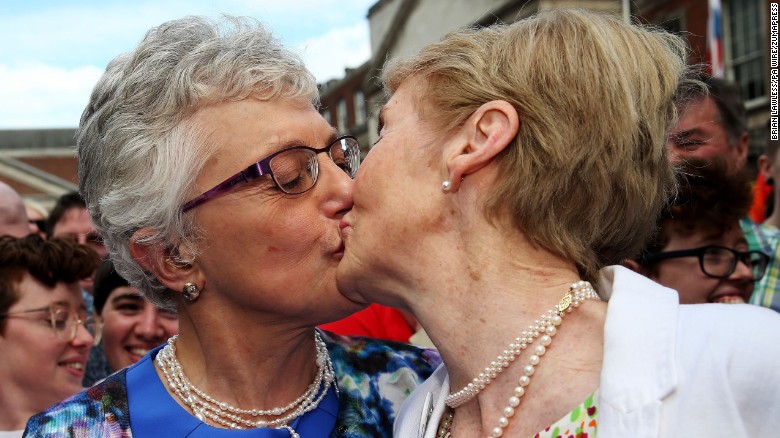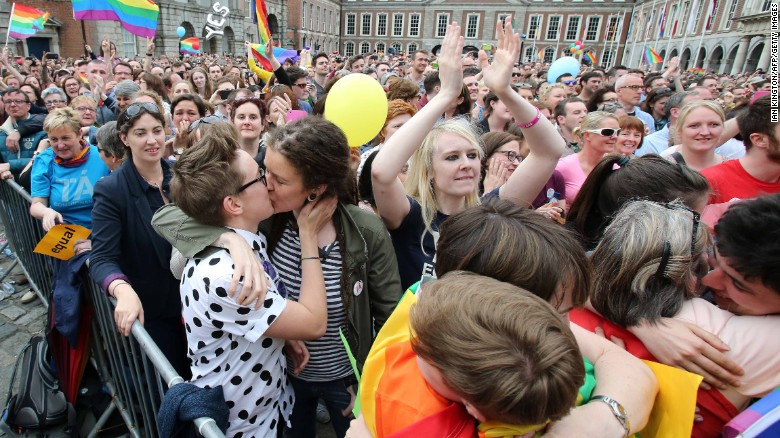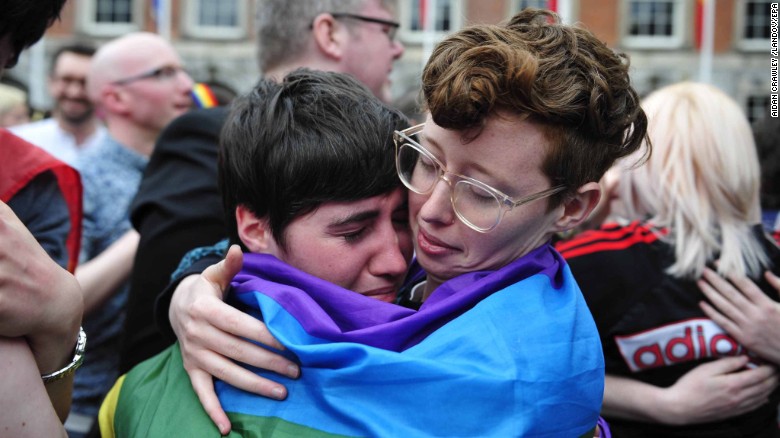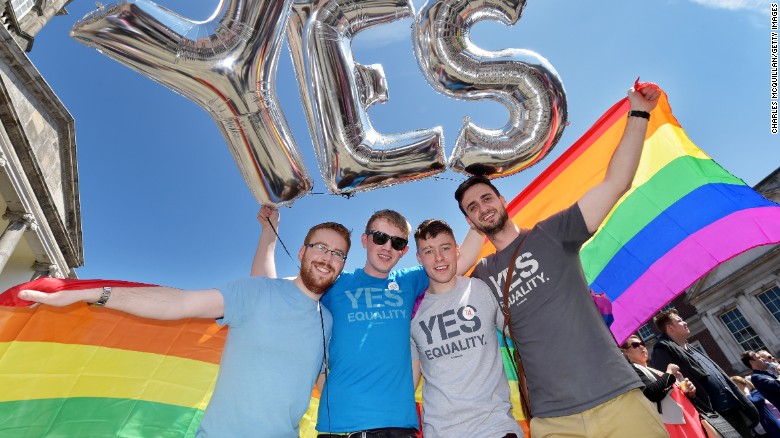Voters
in Ireland overwhelmingly chose to change their nation's constitution
Friday, becoming the first country in the world to legalize same-sex
marriage through popular vote.
The
official results were announced Saturday at a Dublin Castle press
conference: 1,201,607 voted in favor of the landmark referendum, while
734,300 voted against it, said Ríona Ní Fhlanghaile, an elections
official.
Voter turnout in the majority Catholic nation was more than 60%, according to Fhlanghaile.
Despite
speculation in the run-up that opposition to the measure might have
been understated because people were too shy to tell pollsters that they
planned to vote "no" -- the outcome was lopsided, with the measure
passing by just over 61% of the total vote cast.
Once the votes began to be tallied, the result was never in doubt.
Only one of the country's 43 parliamentary constituencies failed to pass it.
Support from Ireland's political leaders
As
is the case in many other countries around the world, the issue is a
polarizing one in Ireland, a country that didn't decriminalize
homosexuality until the 1990s.
This
referendum was seen as a test of whether more liberal thinking can trump
Ireland's traditionally conservative, Catholic leanings.
The "yes" campaign enjoyed considerable support from the country's political establishment.
Prime
Minister Enda Kenny said prior to the vote that the country could
"create history" and that a "yes" vote would "obliterate" prejudice
along with irrational fears of difference. On Saturday, Kenny said the
outcome "disclosed who we are -- a generous, compassionate, bold and
joyful people."
"In Ireland, we're
known as a nation of storytellers," added Deputy Prime Minister Joan
Burton. "And today, the people have told quite some story. This is a
magical, moving moment."
Gerry Adams, leader of the Sinn Fein political party, called it "a huge day for equality," and over the border in Northern Ireland
-- the only part of the United Kingdom where same-sex marriage is
still prohibited -- Deputy First Minister Martin McGuinness hoped
they'll take notice.
"The world is
moving on and Ireland is taking the lead," said McGuinness.
"Politicians, particularly in the north need to reflect on this
progress."




No comments:
Post a Comment